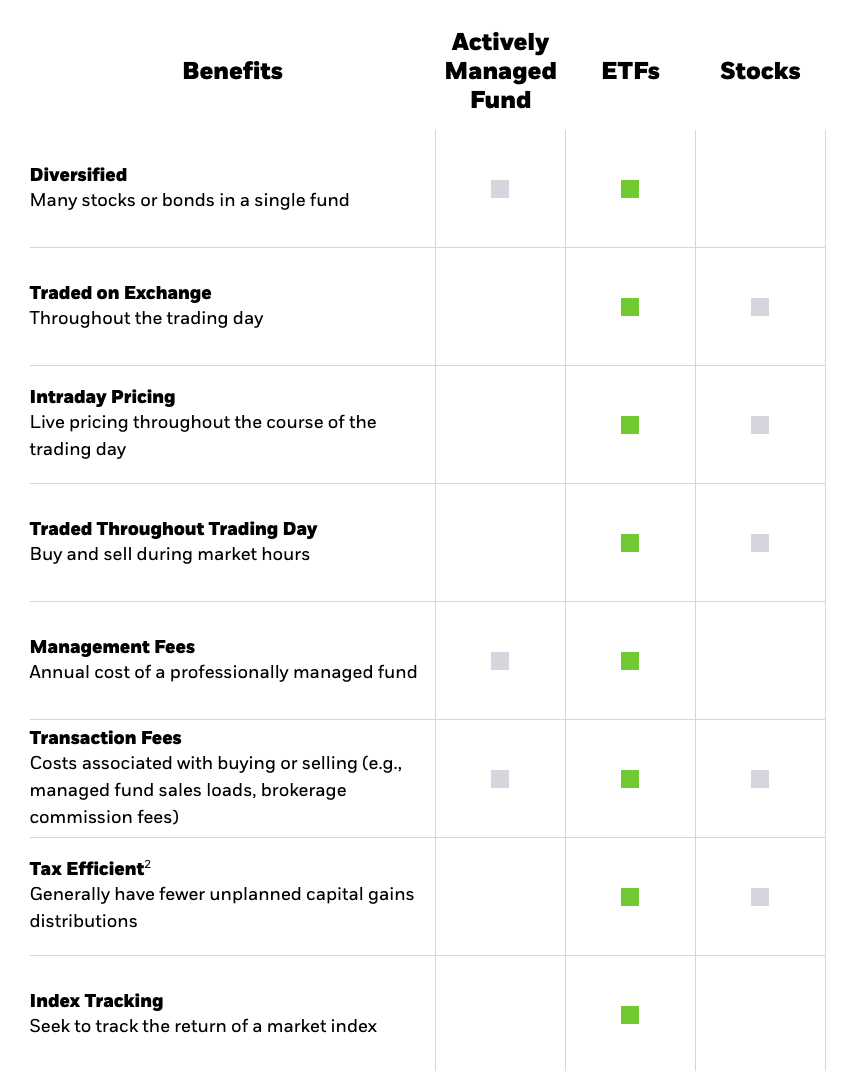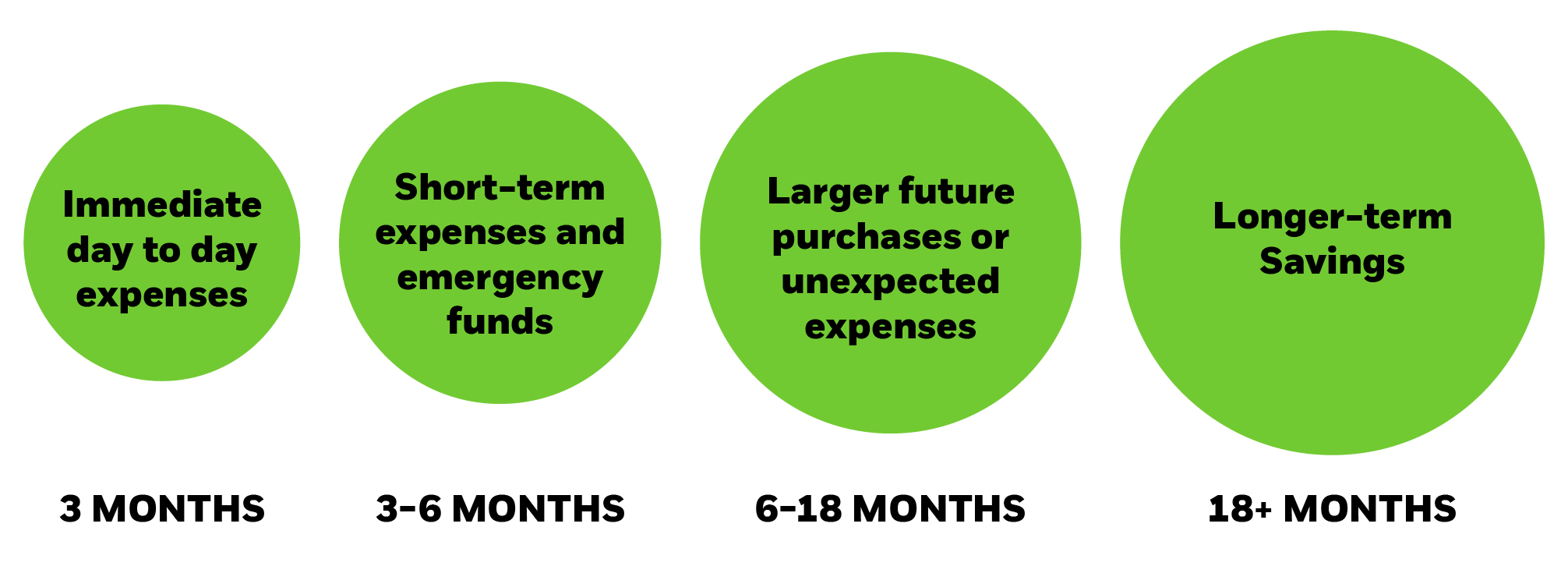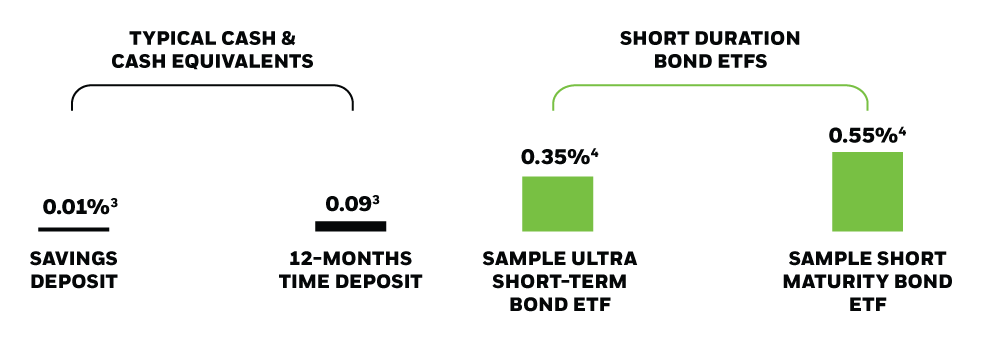Before you proceed, please take a moment to review and accept the following Terms and Conditions.
READ THESE TERMS AND CONDITIONS ("TERMS") CAREFULLY BEFORE USING THE SERVICES DESCRIBED HEREIN. BY UTILIZING THE WEBSITE LOCATED AT www.blackrock.com/hk ("WEBSITE"), YOU ACKNOWLEDGE THAT YOU HAVE READ THESE TERMS AND THAT YOU AGREE TO BE BOUND BY THEM. IF YOU DO NOT AGREE TO ALL OF THESE TERMS OF THIS AGREEMENT, YOU ARE NOT AN AUTHORIZED USER OF THESE SERVICES AND YOU SHOULD NOT USE THIS WEBSITE.
THIS WEBSITE IS NOT INTENDED FOR AND SHOULD NOT BE ACCESSED BY PERSONS LOCATED OR RESIDENT IN ANY JURISDICTION WHERE (BY REASON OF THAT PERSON'S NATIONALITY, DOMICILE, RESIDENCE OR OTHERWISE) THE PUBLICATION OR AVAILABILITY OF THIS WEBSITE IS PROHIBITED OR CONTRARY TO LOCAL LAW OR REGULATION OR WOULD SUBJECT ANY BLACKROCK ENTITY TO ANY REGISTRATION OR LICENSING REQUIREMENTS IN SUCH JURISDICTIONS. IT IS YOUR RESPONSIBILITY TO BE AWARE OF, TO OBTAIN ALL RELEVANT REGULATORY APPROVALS, LICENCES, VERIFICATIONS AND/OR REGISTRATIONS UNDER, AND TO OBSERVE ALL APPLICABLE LAWS AND REGULATIONS OF ANY RELEVANT JURISDICTION IN CONNECTION WITH YOUR ENTRANCE TO THIS WEBSITE.
BLACKROCK RESERVES THE RIGHT TO CHANGE, MODIFY, ADD OR REMOVE PORTIONS OF THESE TERMS AT ANY TIME FOR ANY REASON. WE SUGGEST THAT YOU REVIEW THESE TERMS PERIODICALLY FOR CHANGES. SUCH CHANGES SHALL BE EFFECTIVE IMMEDIATELY UPON POSTING. YOU ACKNOWLEDGE THAT BY ACCESSING OUR WEBSITE AFTER WE HAVE POSTED CHANGES TO THESE TERMS, YOU ARE AGREEING TO THESE TERMS AS MODIFIED.
Disclaimer
This Website is owned by BlackRock Asset Management North Asia Limited, which is licensed by the Securities and Futures Commission ("SFC") in the Hong Kong Special Administrative Region of the People's Republic of China ("Hong Kong") pursuant to the Securities and Futures Ordinance (Cap 571) (CE no: AFF275). This Website is managed by various companies within the BlackRock Group. BlackRock Asset Management North Asia Limited, together with other BlackRock Group companies, shall collectively hereinafter be referred to as "BlackRock".
Nothing contained on this Website constitutes tax, accounting, regulatory, legal, insurance or investment advice. Neither the information, nor any opinion, contained on this Website constitutes a promotion, recommendation, solicitation or offer by BlackRock or its affiliates to buy or sell any securities, collective investment schemes, futures, options or other financial instruments or services, nor shall any such security, collective investment scheme, futures, options or other financial instruments or services be offered or sold to any person in any jurisdiction in which such offer, solicitation, purchase, or sale would be unlawful under the securities laws of such jurisdiction. Decisions based on information contained on this Website are the sole responsibility of the visitor. In exchange for using this Website, the visitor agrees to indemnify and hold BlackRock, its officers, directors, employees, affiliates, agents, licensors and suppliers harmless against any and all claims, losses, liability, costs and expenses (including but not limited to attorneys' fees) arising from your use of this Website, from your violation of these Terms or from any decisions that the visitor makes based on such information.
The investments and strategies discussed in the Website may not be suitable for all investors and are not obligations of BlackRock or its affiliates or guaranteed by BlackRock or its affiliates. BlackRock makes no representations that the contents are appropriate for use in all locations, or that the transactions, securities, products, instruments, or services discussed on this site are available or appropriate for sale or use in all jurisdictions or countries, or by all investors or counterparties. By making available information on the Website, BlackRock does not represent that any investment vehicle is available or suitable for any particular user. All persons and entities accessing the Website do so on their own initiative and are responsible for compliance with applicable local laws and regulations.
The funds referred to in this Website are authorized by the SFC for sale to the public in Hong Kong (the “Funds”). SFC authorization is not a recommendation or endorsement of a scheme nor does it guarantee the commercial merits or performances of the scheme. It does not mean that the scheme is suitable for all investors nor is it an endorsement of its suitability for any particular investor or class of investors. The material contained in this Website has not been reviewed by the SFC or any regulatory authority in Hong Kong.
Investment involves risk and may lose value. If you are considering making an investment, you are advised to obtain your own independent professional advice and to carefully consider all relevant risk factors. The price of units or shares and the income from them in relation to any investment may go down as well as up and any past performance is not indicative of future performance. BlackRock does not guarantee the performance of the Funds.
An investment in the Funds often involves investing in international markets. In addition to the normal risks associated with investing, international investments involve the risk of losing all or part of any capital from unfavourable fluctuations in currency values, from differences in generally accepted accounting principles or from economic or political instability in other nations. An investment in emerging markets also involves heightened other risks such as increased volatility and the possibility of lower trading volume.
When making an investment in the Funds which are listed on one or more stock exchanges, the price of the shares or units will be determined by supply and demand. It is not necessarily the same as the value per share or unit of that the Funds’ assets. At any time the share or unit price may be at a discount or premium to the asset value. However, because of the exchange-traded fund structure, it is expected that a significant discount or premium of price to asset value will not be sustainable over the long term. Any projections or examples (including calculations used therein) are for illustrative purposes only and are not guaranteed to be accurate or complete. You should note that shares or units may only be redeemed directly from the Funds by persons or entities registered as participating dealers in very large redemption sizes. Listing of the shares or units of the Funds does not guarantee a liquid market for them.
Where a Fund's investment objective is to track an index, the Fund is not sponsored, endorsed, issued, sold or promoted by the relevant index provider. None of these companies make any representation regarding the advisability of investing in the Funds.
Important information about the Funds is contained in the prospectus for the Funds which is available upon request from BlackRock. BEFORE ACQUIRING THE SHARES OR UNITS OF ANY FUNDS BY PURCHASE OR EXCHANGE, IT IS YOUR RESPONSIBILITY TO READ THE FUNDS’ PROSPECTUS OR OFFERING MATERIALS.
This Website is for information purposes only and is not intended to be relied upon as a forecast, research or investment advice. Although this material is based upon information that BlackRock considers reliable and endeavors to keep current, BlackRock does not assure that this material is accurate, current or complete, and it should not be relied upon as such. The contents of this Website have been prepared without regard to the investment objectives, financial situation, or means of any particular person or entity, and the Website is not soliciting any action based upon them. Any opinions expressed on this Website may change as subsequent conditions vary. Past performance is no guarantee of future results.
The information and services provided on this Website are provided "AS IS" and without warranties of any kind, either expressed or implied. To the fullest extent permissible pursuant to applicable law, BlackRock disclaims all warranties, including, but not limited to, any warranty of non-infringement of third-party rights and any implied warranties of merchantability and fitness for a particular purpose. BlackRock does not warrant, either expressly or impliedly, the accuracy or completeness of the information, text, graphics, links or other items contained on this Website and does not warrant that the functions contained in this Website will be uninterrupted or error-free, that defects will be corrected, or that the Website will be free of viruses or other harmful components. BlackRock expressly disclaims all liability for errors and omissions in the materials on this Website and for the use or interpretation by others of information contained on the Website.
Trademarks, Copyrights and other Intellectual Property
The content contained on this Website is owned or licensed by BlackRock and its third-party information providers and is protected by applicable copyrights, trademarks, service marks, and/or other intellectual property rights. Such content is solely for your personal, non-commercial use. Accordingly, you may not copy, distribute, modify, post, frame or deep link this Website, including any text, graphics, video, audio, software code, user interface design or logos. You may download material displayed on this Website for your personal use provided you also retain all copyright and other proprietary notices contained on the materials. You may not distribute, modify, transmit, reuse, repost, or use the content of this Website for public or commercial purposes, including all text, images, audio, and video, without BlackRock's prior written permission. Modification or use of the materials for any other purpose violates BlackRock's intellectual property rights.
All trademarks, service marks, trade names, and logos displayed on this Website are proprietary to BlackRock and/or their respective owners. Nothing contained on this Website should be construed as granting, by implication, estoppel, or otherwise, any license or right to use any trademark displayed on this Website without the written permission of BlackRock or such other third party that may own the trademark displayed on this Website. Your use of the trademarks displayed on this Website, except as provided herein, is strictly prohibited.
The use of the images displayed on this Website by you, or anyone else authorized by you, is prohibited. Any unauthorized use of the images may violate copyright laws, trademark laws, and the laws of privacy and publicity, and communications, as well as other regulations and statutes. If you download any information from this Website, you agree that you will not copy it or remove or obscure any copyright or other notices or legends contained in any such information.
Links to Other Websites
BlackRock may establish links between this Website and one or more websites operated by third parties. BlackRock has no control over any such other websites, the contents therein or the products/services offered. The existence of any such links shall not constitute an endorsement of, or representation or warranty by BlackRock regarding such websites, the contents of the websites, the products or services of the websites or the operators of the websites. Your access to and use of such linked websites is governed by the terms of use and privacy policies of those sites, and shall be at your own risk. BlackRock disclaims responsibility for the privacy policies and customer information practices of third-party internet websites hyperlinked from our Website.
Links to BlackRock from Other Websites
You shall not display hyperlinks on your websites to any website owned or operated by BlackRock. If you desire to display on your website a hyperlink to a BlackRock website, you must enter into a written agreement with BlackRock governing such display. Access to any BlackRock website does not authorize you to use any of BlackRock's names, logos, trademarks or copyrighted material, and you agree not to do so without BlackRock's express written consent. Requests to display hyperlinks on your websites to BlackRock websites should be e-mailed to clientservice.asiapac@blackrock.com.
Transmissions to and from this Website
Electronic communications can be intercepted by third parties and, accordingly, transmissions to and from this Website may not be secure. Communications to BlackRock, particularly those containing confidential information, may be sent by mail to: BlackRock Asset Management North Asia Limited, 16/F Champion Tower, 3 Garden Road, Central, Hong Kong, or by email to: clientservice.asiapac@blackrock.com. BlackRock shall be free to use, for any purpose, any ideas, concepts, know-how, or techniques provided by a website user to BlackRock through this Website or by mail or email. You acknowledge and agree that BlackRock has granted you limited access to the specific files pertaining to the Funds ("Approved Files"), and you agree not to attempt to access computer files other than the Approved Files. BlackRock makes no warranty to you regarding the security of the Website, including with regard to the ability of any unauthorized persons to access information received or transmitted by you through or from the Website. BlackRock reserves the right to cease providing, or to change, this Website and content of such information (or any portion or feature thereof) at any time or frequency and without notice.
Jurisdiction and Governing Law
The information provided on this Website is not intended for distribution to, or use by, any person or entity in any jurisdiction or country where such distribution or use would be contrary to law or regulation or which would subject BlackRock or its affiliates to any registration requirement within such jurisdiction or country. Each investment product and service referred to on this Website is intended to be made available only to residents in Hong Kong.
These Terms shall be governed by, and shall be construed in accordance with, the laws of Hong Kong. The courts of Hong Kong shall have non-exclusive jurisdiction to hear and determine any suit, action or proceeding, and to settle any disputes, which may arise out of or in connection with these Terms and, for such purposes, you agree to submit to the jurisdiction of the courts of Hong Kong. Each party hereby waives any objection which it might at any time have to the courts of Hong Kong being nominated as the forum to hear and determine any proceedings and to settle any disputes and agrees not to claim that the courts of Hong Kong are not a convenient or appropriate forum.
Limitation of Liability
BLACKROCK AND ITS AFFILIATES AND THEIR RESPECTIVE OFFICERS, DIRECTORS, EMPLOYEES OR AGENTS WILL NOT BE LIABLE TO YOU OR ANYONE ELSE FOR ANY DAMAGES OF ANY KIND, INCLUDING, BUT NOT LIMITED TO, DIRECT, CONSEQUENTIAL, INCIDENTAL, SPECIAL OR INDIRECT DAMAGES (INCLUDING BUT NOT LIMITED TO LOST PROFITS, TRADING LOSSES OR DAMAGES THAT RESULT FROM USE OR LOSS OF USE OF THIS WEBSITE), EVEN IF BLACKROCK HAS BEEN ADVISED OF THE POSSIBILITY OF SUCH DAMAGES OR LOSSES, INCLUDING, WITHOUT LIMITATION, FROM THE USE OR ATTEMPTED USE OF THIS WEBSITE OR ANOTHER LINKED WEBSITE.
Timeliness of Content
All content on this Website is presented only as of the date published or indicated, and may be superseded by subsequent market events or for other reasons. In addition, you are responsible for setting the cache settings on your browser to ensure you are receiving the most recent data.
Prohibited Uses
Except as otherwise stated in these Terms or as expressly authorized by BlackRock in writing, you may not:
- Use this Website in any manner that could damage or overburden any BlackRock server, or any network connected to any BlackRock server, as all servers have limited capacity and are used by many people;
- Use this Website in any manner that would interfere with another party's use of the Website;
- Include the term "BlackRock" or any BlackRock trademark or executive's name, or any variation of the foregoing, as a meta-tag, hidden textual element;
- Use any robot, spider, intelligent agent, other automatic device, or manual process to search, monitor or copy this Website or the reports, data, information, content, software, products services, or other materials on, generated by or obtained from this Website, whether through links or otherwise (collectively, "Materials"), without BlackRock's permission, provided that generally available third-party web browsers may be used without such permission; or
- Use this Website or the Materials in any manner that could create impression of affiliation, sponsorship or endorsement by BlackRock.
System Outages and Incomplete Transmissions
Internet software or transmission problems may produce inaccurate or incomplete copies of information and materials that may be downloaded and displayed on a user's computer. BlackRock is not liable for any damages, changes, or omissions that occur during transmission of information and materials.
Termination
BlackRock may terminate your access to the Website for any reason, without prior notice.
Waiver
No waiver by BlackRock of any right under or term or provision of these Terms will be deemed a waiver of any other right, term, or provision of these Terms at the time of such waiver or a waiver of that or any other right, term, or provision of these Terms at any other time.
Integration and Severability
If any provision of these Terms is deemed unlawful, void, or for any reason unenforceable, then that provision will be deemed severable from these Terms and will not affect the validity and enforceability of the remaining provisions.
The preceding Terms of use represent the entire agreement between BlackRock and the user relating to the subject matter herein.
BlackRock is an equal opportunity employer committed to diversity in the workplace.
Privacy Policy
Please review our Privacy Policy, which is a part of this Agreement and hereby incorporated by reference, to learn about our information collection practices and the measures we take to preserve the privacy and security of your information.
Dated: May 2024
© 2024 BlackRock, Inc. All rights reserved. iShares® and BlackRock® are registered trademarks of BlackRock, Inc., or its subsidiaries in the United States and elsewhere. All other trademarks, servicemarks or registered trademarks are the property of their respective owners.






